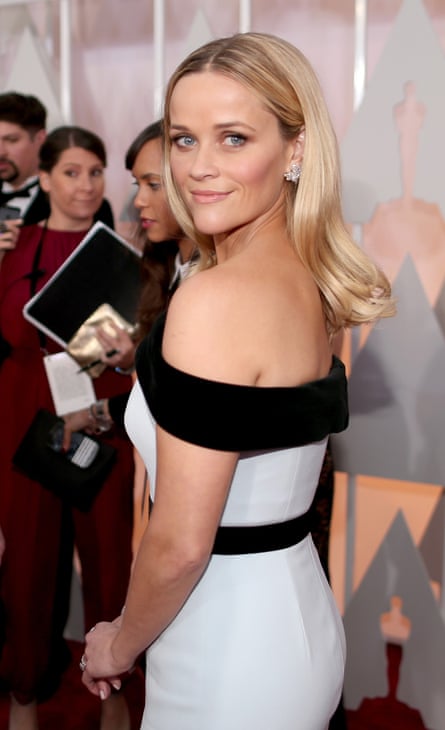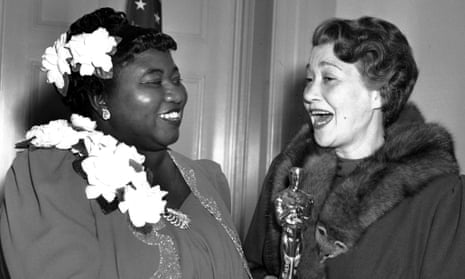One day, I hope to own the world’s largest collection of the phrase “the Oscars of our industry”. “The Tractor of the Year awards are, quite rightly, considered the Oscars of our industry,” runs a typical example. Last week was “the Oscars of the travel industry”. A week before that was “the Oscars of the toy industry”. This week was a ceremony “often labelled the Oscars of the golf service industry”. Who would care to argue with the statement “the Welsh Call Centre awards are considered the Oscars of our industry”, or fail to be excited by news that the Window Covering Manufacturers Association has announced the winners in a ceremony “often referred to as the Oscars of our industry”? And, of course, next month is the British Press Awards, to which newspapers traditionally refer – with the absolute lack of irony you’d expect – as “the Oscars of our industry”.
Which brings us to the Academy Awards – often considered the Oscars of the movie industry – where the dreariness of the supposed main attraction is still the great unspoken. The Super Bowl appears to have made its peace with the fact that people care more about what’s on in the hallowed commercial break than the game itself.
The Oscars, unfortunately, remains in denial about the fact that many people are tuning in for the dresses, with the stars’ delusions now enabled by the likes of the hashtag #askhermore. Did you hear about this? It’s one of those really vital and ambitious fourth-wave feminist campaigns, which in this case seeks to address … hang on, let me put my reading glasses on and have another squint at this … the inequalities of the red carpet. According to its organisers, we “risk devaluing the work of women in Hollywood”. My feelings on reading this are roughly analogous to those when I discovered that the word “whorephobic” genuinely wasn’t some pathetic joke invented by Richard Littlejohn to denigrate the politically correct.
Anyway, according to one of its many starry supporters, Reese Witherspoon, #askhermore is “a movement”, and it is “meant to inspire reporters to ask creative questions on the red carpet” of female nominees. “Let’s hear their stories!” implores Reese, rightly identifying that celebrities talking about themselves is the great lacuna of early 21st-century discourse.
Which brings us to what has tentatively been billed “the most political Oscars ever”. While there may be many different answers to the question “Who are you wearing?”, Sunday night proved there is only one answer to the question “What are you wearing?”. And that is: “My learning. And not very lightly.”
From red carpet to stage, stars bravely refused to waste their platform, mindful instead of their obligation to shine a light and drag the rest of us up to speed. Time was the Academy managed to contain this sort of thing to the odd Brando stunt and an annual turn by the Sarandon-Robbinses. One of the more amusingly rude introductions I’ve ever seen was David Letterman’s to the aforementioned Susan and Tim, who were about to arrive on stage. “Here to present the award are Susan Sarandon and Tim Robbins,” he explained. “And I’m sure they’re mad as hell about something …”

All the stars are mad as hell about something these days – because if they weren’t, who would be? Apparently, Oscars organisers are forever telling the actors that a billion people are watching them. “They keep reminding you, like, every two seconds,” Cate Blanchett once revealed to Oprah. (In fact, this year’s US TV audience for the event averaged 36.6m, leaving the rest of the world to make up that 963.4m shortfall. Or not.)
Perhaps it’s this misplaced sense of global obligation that accounts for the stories Hollywood tells itself, exemplified by George Clooney’s best supporting actor acceptance speech for Syriana a few years back, in which he proudly declared: “This Academy, this group of people, gave Hattie McDaniel an Oscar in 1939 when blacks were still sitting in the backs of theatres …”
I’m sure none of us wishes to be the bearer of inconvenient historical facts, but this Academy – this group of people – stuck McDaniel, her escort and her agent on a segregated table at the back of the ballroom where the Oscars were held, far away from the rest of the Gone with the Wind nominees, and – just as an FYI – McDaniel would be permitted to build on her Oscar triumph by going on to play a servant many more times. But well done, This Academy. Well done, This Group of People.
And yet, even as I typed that last paragraph, I reflected how much more appropriate this sort of candid friendship would sound falling from the lips of a winner at, say, this year’s Tractor of the Year awards. After all, Hollywood generously uses its prize-giving ceremonies to make the rest of the world a better place. Isn’t it time the rest of the world returned the favour, and started using their award ceremonies to make Hollywood a better place? Lost in Showbiz hereby calls on leading golf services providers and window covering manufacturers and all the others not to waste their platform in the future, and to use it to shine a light on the deficiencies of a town capable only of celebrating itself.
Picture the potential scene at this year’s Tractor of the Year awards, which in a sense would be no less random than that which unfolded at the Dolby theatre last Sunday. The winner of the big one takes the stage. A hush falls over the room. He’s going to say something, and – praise be – he’s not going to keep it to tractors. His platform is too damn important to waste. He looks down at his trophy, cradling it in studied reflection. “You know,” he begins slowly, “I thought a lot about keeping quiet if I won this. I thought a lot about talking about torque. But then I decided: no. No longer. I am proud to stand up tonight and to highlight the unbelievably craven and insidious lack of gay sex in The Imitation Game. I mean really. REALLY. I think we all know exactly what sort of thinking lay behind that supposed sanitisation, and tonight I am HONOURED to stand in this room – among this group of tractor producers – to call bullshit on it.”
Sure, maybe he’d get faded out by a combine harvester. But at least he’d have clawed one back against the movie moralisers.
- This article was amended on 27 February 2015 to correct the number of non-American viewers needed to boost the global audience of the Oscars to a round billion.

Comments (…)
Sign in or create your Guardian account to join the discussion